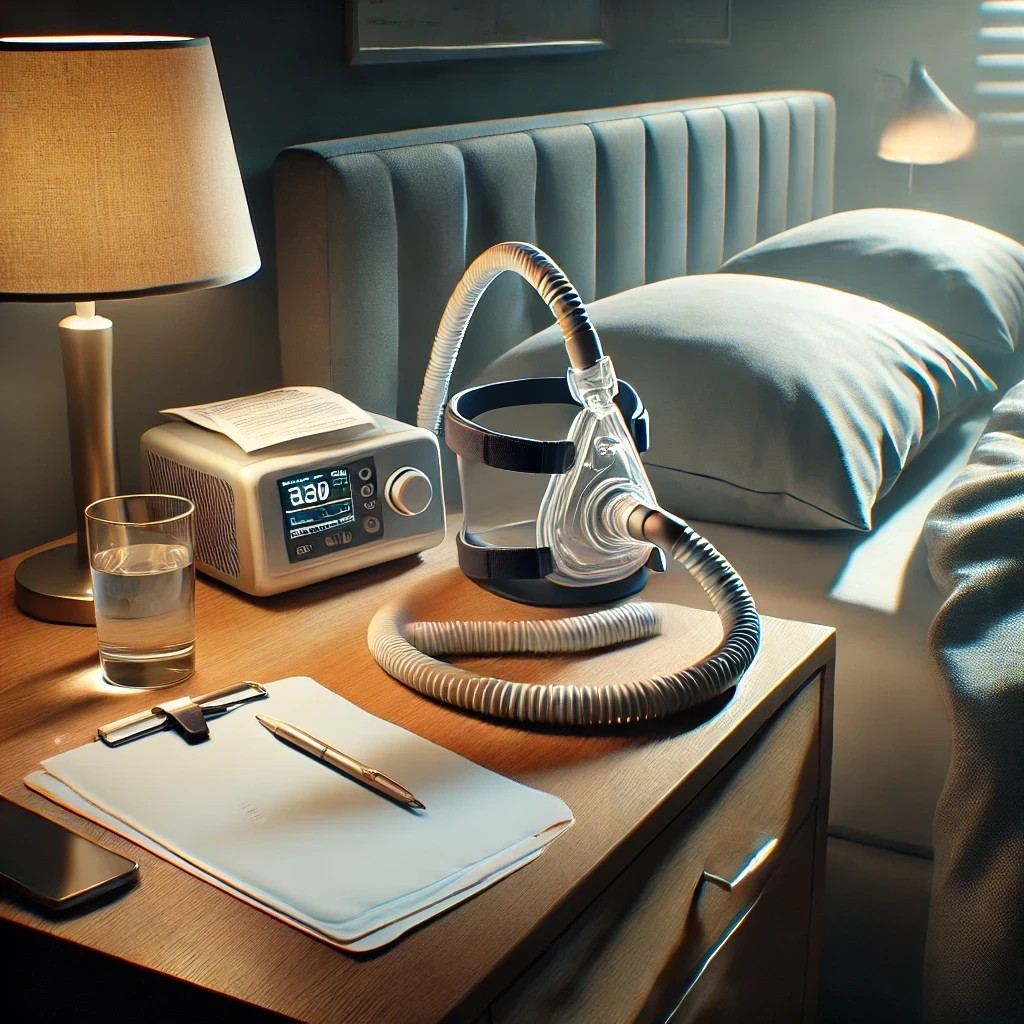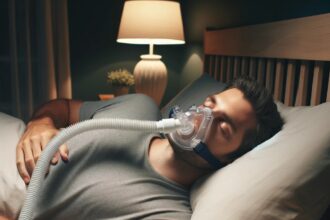Millions of people rely on CPAP machines and BiPAP (Bilevel Positive Airway Pressure) devices to manage sleep apnea, but recent CPAP device recalls have raised serious safety and health concerns. Among the most notable issues are the Philips CPAP and BiPAP machines, which were recalled after it was discovered that sound abatement foam in certain models could break down, releasing toxic foam particles that users could inhale or ingest. This issue has led many patients to wonder if they might be eligible for compensation through a CPAP lawsuit, specifically targeting Philips Respironics, the company behind these defective CPAP machines.
Mass Tort America is here to help patients across the country who have been affected by recalled CPAP devices navigate the legal landscape, determine their eligibility, and seek compensation. Our team, which specializes in medical device claims, is well-versed in handling CPAP recall litigation, including class action lawsuits and multidistrict litigation (MDL) that have been filed to address these massive CPAP recalls. Understanding the complexity and intricacies involved in litigation related to defective medical devices like CPAP and BiPAP machines can be confusing, particularly for consumers seeking information on product recalls and lawsuits concerning health issues allegedly caused by their use. If you’ve been affected by the Philips CPAP recall or another recalled CPAP device, read on for answers to the top legal questions and learn how our dedicated team can assist you.
Understanding The Scope Of Philips CPAP Recall
The recall of CPAP and BiPAP machines has impacted numerous Philips CPAP models, affecting millions of sleep apnea patients. The primary issue involves the PE-PUR foam, which was intended to reduce noise but has instead degraded, releasing harmful particles into the air pathways of these devices. Many CPAP and BiPAP users remain unaware of the full extent of the recalled Philips CPAP devices, and some continue to use them due to a lack of available replacements.
As more patients are exposed to these recalled devices, Philips Respironics has faced thousands of CPAP recall lawsuits, including individual cases, personal injury claims, and wrongful death lawsuits. This recall extends beyond Philips CPAP machines, including other Philips respiratory devices and ventilators that pose similar risks. Understanding the recall’s scale allows patients to evaluate their exposure and take action, whether by switching to safer alternatives or joining ongoing CPAP class action lawsuits. Additionally, those affected should stay informed about the Philips CPAP recall lawsuit to understand filing deadlines and recent legal developments.
Both Philips Respironics and the FDA have advised affected patients to consult with healthcare providers to address any symptoms or concerns related to these defective CPAP devices. Yet, the recall process has been slow, leaving patients vulnerable as they await safe alternatives. With ongoing investigations, Philips CPAP recall lawyers are pursuing legal claims on behalf of impacted CPAP users, helping them seek justice for harm caused by these faulty devices.
What Is a CPAP Machine And How Does It Work?
A Continuous Positive Airway Pressure (CPAP) machine is a vital medical device used to treat sleep apnea, a condition characterized by interrupted breathing during sleep. CPAP machines work by delivering a constant flow of air pressure into the airways, keeping them open and preventing collapse. This continuous airflow helps improve breathing, reduce snoring, and increase oxygen levels in the blood, ensuring a restful night’s sleep.
CPAP machines typically use a mask or nasal prongs to deliver the air pressure. The device is set to a specific pressure level, determined by a healthcare provider based on the patient’s individual needs. The air pressure is then delivered through a hose connected to the mask or nasal prongs, providing a steady flow of air throughout the night. By maintaining open airways, CPAP machines significantly enhance the quality of sleep for those suffering from sleep apnea.
Why Were Philips CPAP Machines Recalled?
In June 2021, Philips CPAP machines were recalled due to serious health risks associated with the polyester-based polyurethane (PE-PUR) sound abatement foam used in these devices. Over time, this foam can degrade, releasing harmful particles and chemicals that users may inhale or ingest. These toxic substances can lead to severe health issues, including cancer, respiratory problems, and other significant injuries.
The recall affected millions of CPAP and BiPAP machines manufactured by Philips between 2009 and 2021. In response, Philips has replaced the problematic PE-PUR foam with a safer material. However, the recall has triggered numerous lawsuits and claims for compensation, as many users have experienced adverse health effects from the defective devices.
How CPAP Defects Are Identified And Investigated
In many cases, medical device defects like those seen in Philips CPAP and BiPAP machines are identified through patient complaints, medical device reports, and FDA evaluations. With CPAP machines, patients reported respiratory issues and other symptoms that prompted further investigation, ultimately revealing the toxic nature of the degraded sound abatement foam. These toxic particles can cause serious health risks, including respiratory complications, organ damage, and potentially even cancer.
The FDA conducted a detailed investigation, finding that degraded foam in recalled Philips CPAP devices releases volatile organic compounds (VOCs) and particles that could be inhaled by users. These harmful compounds pose health risks for all users, but especially those with pre-existing respiratory conditions, adding urgency to the CPAP recall lawsuit process. Medical experts have highlighted the potential dangers for patients who may unknowingly inhale toxic particles night after night.
These investigations support CPAP claims by linking specific health impacts to the use of defective CPAP machines, which are critical in CPAP injury lawsuits. This growing body of evidence is essential in building a CPAP settlement agreement, and many incoming personal injury plaintiffs are pursuing compensation in CPAP litigation. This evidence also provides a framework for Philips CPAP recall MDL and CPAP class action lawsuits that seek to hold Philips accountable.
What Health Risks Are Associated With Recalled CPAP Machines?
The recalled Philips CPAP machines have been linked to several serious health risks, including:
- Cancer: The PE-PUR foam used in these machines can release carcinogenic chemicals, increasing the risk of cancer.
- Respiratory Problems: Inhaling particles and chemicals from the degraded foam can cause respiratory issues such as asthma, chronic obstructive pulmonary disease (COPD), and other breathing difficulties.
- Other Injuries: Exposure to the toxic foam can also result in organ damage, including kidney and liver damage.
If you have used a recalled Philips CPAP machine and are experiencing any of these health problems, it is crucial to seek medical attention immediately. Early diagnosis and treatment can help mitigate the health impacts associated with these defective devices.
Legal Grounds For Filing A CPAP Lawsuit
Legal grounds for filing CPAP lawsuits, particularly Philips CPAP recall lawsuits, generally revolve around product liability, negligence, and breach of warranty. Product liability claims argue that Philips released CPAP machines that were defective and unreasonably dangerous. Many patients assert that Philips attempted to address the issue too late, putting them at risk unnecessarily and triggering a wave of personal injury claims. The Philips CPAP lawsuit also involves determining eligibility for filing, assessing the categories of compensatory damages that can be claimed, and understanding the ongoing status of settlements for individuals affected by the recall.
Negligence claims in CPAP litigation often contend that Philips failed to adequately test or monitor its devices for harmful effects, resulting in patients unknowingly using defective CPAP machines. This alleged negligence could potentially bolster wrongful death claims if the devices are linked to serious or fatal health complications.
Breach of warranty claims are also relevant, as users expected safe and functional products but instead received devices that posed severe health risks. Many patients are joining CPAP class action MDL to address these issues on a larger scale, unifying claims against Philips Respironics in hopes of obtaining a CPAP settlement. The legal grounds established through these claims support patients in their pursuit of financial compensation and accountability from Philips.
What Is The Deadline To File A CPAP Recall Lawsuit?
The deadline to file a CPAP recall lawsuit varies depending on the state and the specific circumstances of each case. Generally, the statute of limitations for product liability claims ranges from one to six years, depending on the jurisdiction.
It is essential to consult with a qualified attorney as soon as possible to determine the specific deadline for filing a lawsuit in your case. Missing the statute of limitations can result in losing the right to seek compensation for the harm caused by the defective CPAP machines.
Documenting Health Impacts For CPAP Claims
Gathering documentation is crucial for patients involved in CPAP recall lawsuits. Medical records that reflect respiratory issues, cancer diagnoses, or other conditions associated with toxic foam particles are vital. Patients should discuss their symptoms with healthcare providers to establish any potential links to the recalled CPAP machines and document how these health issues have impacted their lives.
Keeping a daily symptom log is also helpful, detailing when and how symptoms began, their frequency, and any changes over time. This documentation can strengthen a CPAP injury lawsuit, as it demonstrates how symptoms align with ongoing CPAP therapy using a recalled device. Evidence of consistent use and a worsening health pattern can be vital in injury claims, wrongful death lawsuits, and CPAP settlement cases.
In addition to health documentation, retaining any communications with Philips or other entities about the Philips recall is essential. Notices, recall updates, and device maintenance records provide context, supporting claims of injury and negligence in CPAP recall lawsuits filed against Philips Respironics. The more organized a patient’s documentation, the stronger their legal claim in CPAP litigation.
The Role Of Medical Experts In CPAP Cases
Medical experts are crucial in CPAP recall MDL and other CPAP injury lawsuits, as they offer professional insights on how the defective CPAP machine components directly impact patient health. Toxicology, pulmonology, and biomedical engineering experts play a significant role in analyzing how degraded PE-PUR foam in Philips CPAP devices could cause serious respiratory and organ issues.
These experts conduct tests on CPAP models and the specific foam components to determine the potential exposure to harmful compounds like VOCs. They may also review individual medical records, providing testimony on how the defective CPAP device contributed to specific health outcomes. This process is essential in personal injury claims, establishing a clear link between the device defect and patient harm.
Their insights are influential in CPAP lawsuits, often swaying juries and judges by illustrating the health impacts of toxic foam particles. For patients filing a CPAP lawsuit, expert testimonies are critical, strengthening claims in class action lawsuits and setting the stage for favorable settlements.
How CPAP Lawsuits Differ From Other Medical Device Claims
CPAP lawsuits, particularly Philips CPAP recall lawsuits, differ from other medical device claims due to the nature and duration of exposure. CPAP users are exposed to potential toxins nightly, significantly increasing the risk of respiratory complications. This makes proving harm from recalled Philips CPAP machines particularly challenging, as patients must differentiate between device-induced symptoms and their pre-existing conditions.
Philips CPAP lawsuits also face unique complexities due to the widespread nature of the Philips recall, prompting many cases to consolidate into multidistrict litigation. This CPAP recall MDL allows courts to process cases more efficiently, combining evidence from multiple plaintiffs while preserving individual claims.
Class action lawsuits are also prevalent in CPAP litigation, as they allow patients to pursue compensation collectively. This approach streamlines the legal process, providing patients access to resources like medical experts, and strengthens the case against Philips Respironics.
Compensation Beyond Medical Expenses In CPAP Lawsuits
For those affected by defective CPAP machines, compensation often extends beyond direct medical expenses. While covering medical bills is a key component, compensation may also include damages for lost wages, ongoing treatment, and any specialized care needed due to exposure to toxic foam particles. This financial support can alleviate the ongoing treatment costs that many CPAP users face.
Non-economic damages, such as compensation for pain and suffering, are also common in CPAP lawsuit claims. Many patients report a reduced quality of life, chronic discomfort, and significant emotional distress due to their reliance on a defective CPAP machine. Proving these damages requires comprehensive documentation and, at times, testimony from family or mental health professionals.
Additionally, punitive damages may be awarded in cases where Philips’ negligence is particularly severe. Punitive damages are meant to penalize the manufacturer for failing to address known risks and to prevent future oversight. Patients impacted by the recalled Philips CPAP machines may pursue these types of damages to cover the wide-ranging effects of the defective devices.
Federal Regulations Governing Medical Device Recalls
The FDA oversees medical device recalls, establishing guidelines to protect public health and hold manufacturers accountable. For devices like Philips CPAP and BiPAP machines, the FDA sets strict reporting requirements, including mandates for notifying patients, issuing public warnings, and offering replacement devices. Philips’ delayed recall response has led to increased scrutiny, and the FDA continues to monitor the case closely.
When regulatory requirements are not met, manufacturers may face significant penalties, further highlighting the importance of compliance in preventing widespread health issues. The CPAP recall lawsuits filed against Philips illustrate the consequences manufacturers may face for failing to meet these responsibilities, especially when large-scale recalls impact millions of users.
Understanding these regulations empowers CPAP claimants to assert their rights and hold manufacturers accountable for endangering public health. As the Philips recall MDL progresses, patients nationwide are seeing the impact of federal oversight in shaping their legal pathways toward a CPAP settlement.
Potential Outcomes Of CPAP Lawsuits
CPAP litigation can end in various ways, with settlements being the most common resolution. CPAP settlement agreements provide patients with financial compensation without the lengthy trial process. Many patients prefer settlements, as they offer faster relief and avoid the unpredictability of a trial.
Some Philips CPAP lawsuits proceed to trial, where plaintiffs may receive higher compensation awards if they succeed. Trial outcomes vary based on the strength of the evidence and expert testimony, and successful plaintiffs may receive compensation for both economic and non-economic damages. However, trials can be time-consuming and costly, so settlements remain a popular option.
Appeals are also possible in CPAP injury lawsuits, particularly for high-profile cases. If Philips disputes a verdict, it can delay compensation for affected patients. Patients pursuing CPAP litigation should discuss potential outcomes with their attorneys to set realistic expectations.
What Happens In A CPAP Class Action Lawsuit
In massive recalls like the Philips CPAP recall, class action lawsuits allow affected patients to combine their claims, streamlining the litigation process. A CPAP class action lawsuit enables patients to present unified evidence against Philips, reducing individual costs and increasing the chances of favorable settlements.
This collective approach also helps affected patients access expert resources and build a stronger case. By pooling resources, patients can better hold Philips accountable for its role in manufacturing and distributing defective CPAP devices, including Philips ventilators and other recalled Philips devices.
For some patients, filing individual claims may be more appropriate. However, most CPAP recall lawsuits filed thus far fit well within the class action model, allowing plaintiffs to seek justice collectively in the Philips CPAP recall MDL.
Challenges Patients May Face During CPAP Litigation
CPAP litigation presents unique challenges, such as gathering extensive documentation and dealing with the legal defenses that Philips Respironics may assert. Patients must collect medical records, expert testimonies, and proof of purchase, all of which can be complex and costly.
Manufacturers often have strong legal teams that may attempt to downplay claims or argue that health issues are unrelated to device use. Without experienced CPAP lawyers, these defenses can make it difficult for patients to secure a favorable outcome.
High litigation costs may deter some patients from pursuing claims. However, by joining a CPAP class action MDL or hiring a dedicated CPAP lawyer, patients can reduce costs and increase their chances of a successful CPAP settlement.
How to Prepare For A CPAP Device Recall Consultation
Before meeting with a CPAP lawyer, patients should organize relevant documents, such as medical records, recall notices, and purchase information. These records are essential in evaluating the strength of a CPAP injury claim and establishing connections between health issues and the recalled device.
It’s also beneficial to prepare questions about compensation, potential outcomes, and timelines to set realistic expectations for the legal process. Knowing what to expect can empower patients as they embark on their legal journey.
A well-prepared consultation with a CPAP lawyer can streamline the process, ensuring that the legal team has all necessary details to build a strong case. By taking these steps, patients increase their chances of success in CPAP litigation and obtaining the compensation they may deserve.
How Much Does It Cost to Hire A CPAP Lawyer?
The cost of hiring a CPAP lawyer can vary, but many attorneys handle CPAP lawsuits on a contingency fee basis. This means that they only receive payment if they secure a settlement or verdict on behalf of their client. Typically, contingency fees range from 25% to 40% of the total settlement or verdict.
For example, if you receive a settlement of $100,000, your attorney’s fee would be between $25,000 and $40,000. This fee structure can make it more accessible for patients to pursue legal action without upfront costs, aligning the lawyer’s interests with those of the client.
What Questions Should I Ask A CPAP Lawyer?
When considering hiring a CPAP lawyer, it is crucial to ask the right questions to ensure you find the best attorney for your case. Here are some essential questions to ask:
- What experience do you have handling CPAP lawsuits?
- What is your success rate in securing settlements or verdicts for clients?
- How will you handle my case, and what is your strategy for securing compensation?
- What are the potential risks and benefits of pursuing a lawsuit?
- How will you communicate with me throughout the process, and what is your response time for phone calls and emails?
- What are your fees, and how will they be structured?
By asking these questions, you can gain a better understanding of the attorney’s experience, strategy, and fees, helping you make an informed decision about whether to hire them to handle your CPAP lawsuit.
How Can Mass Tort America Help with CPAP Device Recall Cases?
Mass Tort America is committed to supporting patients affected by CPAP device recalls across the nation. Our team specializes in personal injury claims, handling every aspect of CPAP litigation, from coordinating medical records to securing expert testimonies. With our Concierge Team, we manage the details, so you can focus on your health while we build your CPAP recall lawsuit.
Choosing Mass Tort America provides you with a dedicated legal team ready to help you seek compensation. If you’re ready to take action, call us at 800-356-4338 or fill out our contact form at https://masstortamerica.com/contact/.



















